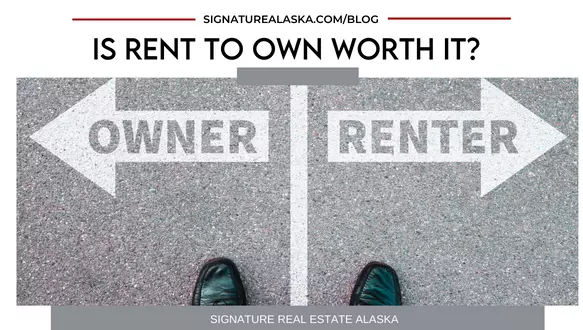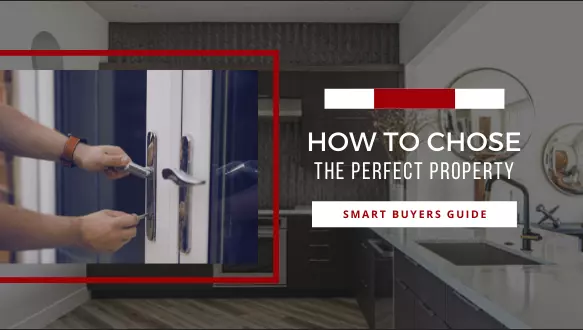
19 Factors That Could Keep Your House From Selling
Selling your house can be an intensely emotional experience in any market, but it's particularly nerve-wracking when it seems like other homes are going under contract in a matter of days while your listing lingers. In that situation, sellers can't help but wonder if there might be something wrong with their place.Well, the unfortunate truth is that maybe there is something wrong. Usually it's the listing price, but there are a ton of other things that are keeping your house on the market -- maybe it's the marketing strategy, or even the house itself. If your house just won't seem to move in a market that's otherwise red-hot, consider whether one of these factors could be stalling a sale. The pictures are amateur It's hard to under-emphasize the importance of listing photos. Most buyers start their home search online, and your listing photos are therefore the first impression that buyers will get of the property.When all the other homes for sale in your neighborhood have crisp, clean images that show the home to its best advantage, and your listing photos are off-center, unfocused and scream "I took all of these pictures in 10 minutes with my cell phone," then don't be surprised when buyers aren't all that interested in your place. The pictures don't make the house look amazing Sometimes even if you use a professional camera (or a professional photographer), the house still doesn't look its very best in the listing photos. In this day and age of digital photography and the ability to preview and discard what's been shot, there's no excuse for shoddy images.Make sure that you're selecting only the photos that make your house shine, and if there aren't any, then you might need to reshoot. Talk to your agent and the listing photographer about shooting at a time of day when there's a lot of natural light and when the home is in pristine condition. You have too much stuff Minimalism might not be a big thing where you live, and that's perfectly fine -- while you're living there. But clutter is going to draw buyers' eyes away from the space of the room and their ability to fill it with their stuff, distracting them when you want them to be fully focused on their dream of homeownership.Garage sales, donation stations and storage units can all be a viable solution for too much stuff, but you need to get it out of the spaces where buyers can see it. (That means the closets, too -- buyers most definitely will open closets and drawers, and if all the clutter is hiding there, it doesn't leave a great impression.) It's not in great condition Some buyers are going to be fine with a fixer-upper, but working on a house is not everybody's idea of fun. Of course, no seller wants to spend money on something like a new roof or a sewer main when you're about to leave and can't reap the benefits of your investment -- but if you think a buyer is going to feel just fine about moving into a house that needs a major repair, then that could be why none have made a viable offer on your place.And sometimes the condition can be just fine, but the house hasn't entirely kept up with the neighbors. If most of the homes for sale in your area have newly updated kitchens and bathrooms, and yours are old enough to vote, then the price needs to reflect that or buyers will just move on to the next opportunity. Upgrades and fixes weren't done professionally If your profession is "home builder," then perhaps you might get a pass here, but most people who are trying to save money on home repairs will likely end up paying for it when the time comes to sell. Even if your fixes look as cosmetically solid as they would if you'd hired a pro (and that's a big if!), there's no telling what an inspector might uncover -- and the very last thing you want is for your home to go back on the market after being under contract because the inspection revealed a sub-par repair. The price is just outside a significant price band What's a price band? Consider how a buyer searches for a house: Usually they're looking on a listing portal or on the MLS, and in either case, they have a price range that fits their budget. Most search functions reflect those price ranges, allowing the buyer to search for homes between $100,000 and $150,000, or between $150,000 and $200,000, for example. The price band is simply the price range included in a search.Some sellers try to leverage sales psychology when pricing a home, so they'll price it by $1 less than the price band to entice buyers into thinking they might find a deal. For example, a seller might price a home that could sell at $300,000 at $299,999. That home would show up in a search for buyers qualified for between $250,000 and $300,000 -- but buyers qualified for $300,000 to $350,000 won't see it because it's outside their price band.Try to pick a sales price that straddles two price bands if you can, exposing it to more buyers. The price was based on an online calculator It's hard to find a homeowner who hasn't looked up their own house on a real estate portal like Zillow -- we're all curious, right? Well, even though that Zestimate price may have given you a warm fuzzy feeling, the truth is that it might not be all that accurate. Online calculators use public records data and sometimes MLS data to create their estimates, but if the data is patchy or there aren't a lot of comparable homes that have sold nearby, then the algorithm might end up pulling some numbers that just don't make any sense.Of course, this can mean an absolute steal for buyers if your automated valuation is below the home's actual value, and you could lose money on the sale. But on the flip side, if you trust that your home really is worth what the automated valuation says -- and you haven't asked an appraiser or a real estate agent what they think -- then that could be why no buyers are interested. Social media ads gave too much away Marketers know that advertising is in some ways an art of enticement. You want to give just enough away to interest buyers viewing your listing and invite them to learn more.If you give too much away in marketing, it can have the opposite effect: There's no mystery, and buyers will make a quick (potentially inaccurate) decision about whether or not they like the house. So remember, more is less -- don't put all your listing photos in a social media ad, for example, and try to leave a little bit of mystery in any listing advertising. You weren't careful about social media in other ways Loose lips sink ships -- and they also sink home sales. In an era when we're all super-connected, it's not outside the realm of possibility that a buyer might have access to what you're posting on social media, and that can come back to bite you big-time.For example, maybe you're excited about a possible bidding war, but posting "three buyers bidding against each other, can't wait to see how high these suckers go" on Facebook (or even worse, Twitter) could cause one or more of your buyers to decide they'd rather not transact with you. Even seemingly innocuous information about your neighborhood or the sights, sounds and scents around your place can turn buyers off, so think carefully before hitting "post" when you're getting ready to sell. The wrong agent is listing the home Like all of us, real estate agents have strengths and weaknesses. Some agents are great at selling condos but haven't sold any single-family homes, and that's just one of the many facets that makes up an agent's experience.It's completely understandable to go with the agent who helped you in your last sale, or a friend of a friend, but do ask any agents you interview about their experience in working with clients like you to sell houses like yours. If they don't have any, then you might be in for a long wait and several price cuts before your house moves. Showings aren't convenient for buyers One of the worst parts of selling a home is dealing with the showing process. It's a pain to keep your house spotless in case a showing gets booked, and then vacate the premises while strangers traipse through with an agent.Although sellers definitely deserve sympathy for how demanding showings can be, they're not exactly a picnic for buyers, either, who are usually trying to visit several houses in the few-hour timespan they've managed to clear out, typically on evenings and weekends when they don't have to work.If you aren't letting buyers come in and walk through on those evenings and weekends, and instead are dictating showing times that only fit your schedule, don't expect buyers to fit your home into theirs. If it's inconvenient, many qualified buyers who'd love your house will prefer to skip it. There's no marketing budget Listing the home on the MLS might be all you need to do in some markets -- but in others, there's so much "noise" that qualified buyers might miss your place entirely. Or they might not know about your neighborhood or street, so their search may not have lead them to your house.Whatever the case, there are times when a little marketing goes a long way. When you're interviewing agents, ask them if they have a marketing budget and what it covers. If they don't have a plan, then that's a sign you might want to try a different agent. There's an issue with the title If you're like most sellers, then the last time you did any research (or paid someone else to do any research) on your home's title was when you bought it. That's completely understandable, but if something has changed in the intervening years, then you might not know about it until you've worked out an offer and the title company discovers it, which is never the best time to try to sort out a potentially very complicated legal issue.Before your home is listed, it's always a good idea to conduct a title search and make sure everything is squeaky clean. You'll breathe easier during closing, anyway! The appliances are outdated No one is insinuating that you need to upgrade to all the best everything before you sell your house -- but the fact of the matter is that if most homes in your neighborhood sport the latest stainless steel kitchen appliances, and yours are avocado green and older than some of your buyers, then this might be an investment you just have to make.It's all about context and perspective. Make sure you understand how your home is measuring up against its competition in the neighborhood. It smells, or it's noisy There are a lot of things that can turn buyers off once they actually step inside a house, but two that there's almost no chance of mitigating include noise and odors. Sometimes there's nothing you can do about either -- the jets overhead or the water plant up the road are just going to do their thing sometimes -- but sometimes there's quite a bit you can do to freshen the space up for the senses.If you have pets, they may have contributed to some of the stink. Get an objective opinion (and don't shoot the messenger!) about how your house smells, and address it if the answer is "not the best." There's no curb appeal Ideally, buyers are going to start picturing your house as "theirs" as soon as they step out of the car to see it. One thing that will kill that fantasy before it even gets going is a house with little to no curb appeal.You don't need to landscape your entire outdoors, but make sure you're addressing the basics. Is the grass alive? If so, has it been mowed? Is the porch clean of clutter and swept? Could a couple of planters with flowers make it look more inviting? The listing description is flat or unrealistic Most buyers are going to look at the photos first and foremost, but many will also pay attention to the listing description. This is a chance to tell interested buyers what you love about the house, and they're going to be looking for information or nuance that they couldn't glean from the photos.For example, maybe the view from the master bathtub is your favorite in the house, or perhaps there's a greenhouse in the yard. Include details in the listing description that help the buyer round out what they know about the house from photos -- and steer away from generic descriptions if possible. Buyers see a lot of them, and they won't help your home stand out. You insist on staying during showings The impulse to do this comes from a good place nine times out of ten: You want to share all of the best features of your house with buyers, and how will they know what those are if you aren't there to help?Trust that buyers know what they are looking for and what appeals to them, and resist the impulse to give them a guided tour. It's uncomfortable at best and creepy at worst for buyers, and you'll never hear candid feedback about what they did and didn't like. Make the place look as amazing as you can, then vacate and let buyers walk through themselves. You're too attached Sometimes it's the right time to sell a house -- and sometimes it doesn't matter how hot the market is: You're just not ready to let go yet. That's a very normal feeling to have, but it can also sabotage your home sale for obvious reasons.Consider whether your attachment to the home could be undermining you in other ways, like insisting that it's worth a certain price or demanding specific concessions from your buyers. If you think it might be, then you have to decide whether your need to sell the house outweighs your desire to stay there, and act accordingly.

5 Home Seller Strategies for Staging Your Home Perfectly
There’s a reason why people love looking at photos of homes for sale — it’s rare that we get to see a place look it's very best, and scrolling through gorgeous room after room helps serious buyers see themselves settling down in those very rooms.But as any seller (or photographer) can attest, getting a home ready for its close-up (also known as “staging”) is not easy and is definitely not always fun. It involves a ton of cleaning, some furniture removal (or placement), a plethora of attention to detail, and usually a lot of light. This is why professional stagers charge hundreds (sometimes thousands) of dollars for their services. If hiring a stager isn’t in your budget or you’re simply more of a do-it-yourself type, consider taking advantage of these relatively quick and easy methods for helping your soon-to-be-sold home appear shiny and new. 1. Clean, clean, clean, clean, clean Even if you follow every other tip on the list to an exacting standard, if your home isn’t clean, you won’t be reaping all of the benefits that staging could generate for you. There are two big steps to cleaning for staging: Decluttering your home Deep cleaning everything … everything First is the clutter. This might be a good time to join the neighborhood garage sale or arrange for your sister-in-law whose kids are a few years younger to come pick up all the hand-me-downs you’ve been promising. It always makes sense to start with things that you don’t want to pack up and move to a new location.Don’t forget about the furniture — too much furniture in a room makes it look cramped and small, so remove what you don’t need.Resist the temptation to box everything up and stash it in one room, the garage, a basement or attic — unless it’s not your room. Buyers are going to want to open doors, cabinets, and drawers, and peer into closets and utility rooms, so if you want your home to look its best, you need to keep those areas neat, too.Some sellers rent storage facilities during the process, and that’s always a possibility, too. If you have family or good friends in the area who can take some of the larger items for you, then you might be able to get a smaller storage unit. (Make sure to pay your loved ones back with a gift or thoughtful gesture when the home is sold!)When the surfaces are clear and your surroundings are feeling more vacation-home than lived-in, it’s time to deep clean those surfaces. Scrub the inside from ceiling to floors; wash your windows; consider power-washing the outside to brighten it up. Plant new flowers, keep your sidewalks and walkways clear and weed-free and set some inviting chairs with fluffy cushions on your (freshly polished, cobweb-free) front porch. Once the decluttering is done, it’ll be much easier to get everything looking shiny and new — and easier to hire help, too — so make sure to tackle this step first. 2. Light up If you haven’t changed a light bulb in a while, then you might be surprised by how much brighter they’ve gotten — or what a difference a bright bulb can make in a room that you thought was naturally dreary and dim.Changing out your bulbs can be a quick way to give your entire home a quick lift, brightening up every room and helping potential buyers see exactly how well-maintained those original wood floors are, and examine the crown molding close up. Experts suggest that you obtain 100 watts of lighting for every 50 square feet in your home, and consider using three different types of lighting (not just overhead lighting) to get there. Overhead or ambient lighting is important, of course, but accent lighting (on walls and tables) and task lighting (reading or under-cabinet lights) will help showcase your space in all its glory. 3. Rearrange with an eye for balance Most of us don’t live in perfectly symmetrical surroundings, but if there’s a way to achieve it with your furniture, then it’s worth it to try — at least for the photos. Try to balance any shelves, counters, and mantelpieces in the same way, with an eye for highlighting the accessories that will help make your home look like a retreat from a messy world. You can do the same thing with area rugs and artwork. Arrange your floor and wall coverings to draw the eye down the halls and through the house, which will give touring buyers a pleasant sense of welcome and discovery. 4. Organize and energize There are always going to be parts of your house that are made to hold “stuff” — but you can make that stuff look presentable with a little bit of organization. Some decluttering and color-blocking on your bookshelves can make the display draw the eye instead of distracting from the rest of the room, for example. Kids’ and pets’ toys are another opportunity to organize and beautify with a decorative box or basket, or a fun shelving unit that holds everything with style.Straighten your shoes on the closet floors and neaten up the hanging areas, then open up the doors when you leave for a buyer’s tour. They’ll enjoy the welcoming feeling of the open doors (and you know they were going to open them up, anyway). 5. Polish up the appliances If you can afford it, new appliances in the kitchen can go a long (long!) way toward helping a buyer fall in love with the heart of the house. New appliances tend to help generate high returns for sellers, so depending on the condition and upgrades in the rest of your home, you might want to consider it — you might be able to find some good deals on floor models or end-of-season sales, too. If not, help your appliances look their best by using stainless steel polish, glass polish, or whatever else you might need to help regenerate the shine on your stove. You don’t need to take all these tips when staging your home — but don’t ignore them all when you’re selling, either. Taking the time to pay a little bit of attention to staging before a buyer even sees the place can reap big rewards at the closing table.

Is testing the market a good idea?
Selling a house isn’t exactly like selling any other piece of property; there’s no reference book on how much a home should cost because home value depends on so many different factors that vary widely from residence to residence. For this reason, when many sellers are preparing to sell their house, they want to “test the market” — throwing a home price at the wall to see if it sticks, essentially. In practice, this usually means that sellers get a sense of how much their home might be worth by talking to some experts, then deliberately overprice their home when they list it on the market … just to see if anybody will bite. This is an incredibly risky strategy that might work for some one-of-a-kind items like antiques or rare animals, but if you try it with home sales, it’s most likely to blow up in your face. Here’s why. You’re squandering the ‘just listed’ window of opportunity Think for a moment about what it’s like to be a buyer in most real estate markets in the country. When you first get pre-approved and start seriously looking at houses to buy, you look at everything available that meets your general specifications and price range. If you don’t find your new home in that first batch of listings, though, then you play the waiting game, stalking the MLS for every new listing that could be a match and racing to view it as soon as it hits the market. Now think about this pattern from the perspective of the listing itself. When is your home likely to get the most attention from qualified, ready buyers who are eager to see it? You may see small spikes of attention when you drop the price, but your home is going to get the most eyeballs on it when it first hits the market, and if you’re testing the market with a price that you know probably isn’t realistic … well, you’re blowing a huge opportunity to get your house sold quickly for a decent price on the very slim chance that a rare buyer is going to fall in love with your house and pay your dream price. It’s not ‘room to negotiate’ if you can only move down If you think your home is the very best in the neighborhood, and you price it at the very top of the range of homes in your area — even if you’re correct, you’re not giving buyers any room to negotiate except for down. And if any variable doesn’t align with your ideal, if the market is slightly less hot or if your home has one fewer bedroom or the kitchen is a bit outdated, then you’re only going to be negotiating down or dropping the price. A smaller pool of buyers is not better One basic law of economics is that more buyers will be able to afford your product if it’s priced lower than higher. This is why companies do extensive research on the demand for a product and rarely decide to price what they sell at the very top of the range they determine is possible — at a certain point, it’s better to sell more units at a lower price than fewer at a higher price because there will be more consistent demand. When you only have one unit to sell, you might think that the best approach is to price it as high as you can and hope that the buyer who’s willing to pay the most for your home is in the pool of buyers who can afford your ideal price. But if that perfect buyer’s budget doesn’t stretch to include your home, there’s every chance they might miss your “price drop” announcement in a few weeks … or that they might have settled for a different house by then. Buyers are educated ... There is more information available to buyers today online than ever before in human history, and considering the importance and financial impact of a home purchase, you can rest assured that those buyers are taking full advantage of all that available information. They’ve seen every valuation available for your house and know what the algorithms think it’s worth, and they will instantly recognize your attempt to inflate the price. If you don’t have a very good reason for that inflation, you might have trouble keeping their interest. ... And they don’t always want to talk sellers into a fair price Some people relish the prospect of a tough negotiation, and it can be difficult for those people to recognize that not everyone enjoys going back-and-forth to see what each concession is worth. For buyers who aren’t interested in negotiating, an overpriced listing is a huge red flag that they’re going to be spending more time than they’d like talking the seller back down to reality. Even if it’s their dream home and they’d love nothing more than to move in (at a more reasonable price), those buyers are going to move on to greener pastures. So which buyers are left over? The ones who appreciate the art of negotiation just as much as you do … and who are looking forward to getting one up on you so they can tell all their friends about the great real estate deal they just made. Your house isn’t more attractive for the price, but maybe your neighbor’s will be Real estate prices don’t exist in individual bubbles; they’re part of a larger ecosystem of the real estate market, which includes every home on a block, or in a neighborhood, or an entire metropolitan area. If you price your house at the very top of the realistic price range, and everyone else in your neighborhood who’s selling is behaving more reasonably when it comes to pricing their homes, you’re all but driving buyers into their arms when they see that they can get a similar home on the same street for tens of thousands less. A lingering home makes buyers wonder what’s wrong with it Sellers who test the market usually do so with the rationale that they don’t have to sell their house immediately — they have time to experiment and see what works best. This might be a solid philosophy with many other industries, but in real estate, most sellers are under some kind of time pressure, and homes that linger on the market for weeks, then months, sometimes even years, tend to raise buyers’ suspicions. They’re used to the best homes flying off the shelves, so to speak, while homes that don’t sell immediately usually have issues. So what will buyers think when your home has been on the market for months and you’ve dropped the price several times? It will depend on every buyer’s individual experience, but it’s safe to say that their impression probably won’t be good. The house won’t appraise at your full price Even if you’re somehow able to find a buyer who thinks your home is worth the inflated price and is willing to buy it, unless that buyer is paying all-cash, they’ll need to get their mortgage lender to agree that the house is worth the loan amount. Rules and regulations implemented since the Great Recession have created an environment where lenders are adamant about confirming a home’s value, and appraisers are nowhere near as easy to influence these days. If an appraiser evaluates the neighborhood and comes to the conclusion that your home is overpriced, no matter how enthusiastic your buyer is, they won’t be able to close the sale. There are several tactics you can use to maximize your profit on your home sale, none of which include testing the market. If you’re curious about what price your house could fetch realistically in the market today, what improvements might get you more money, and the best approach to listing your house for the neighborhood and type of home, talk to a licensed real estate agent or broker today.
Categories
Recent Posts










